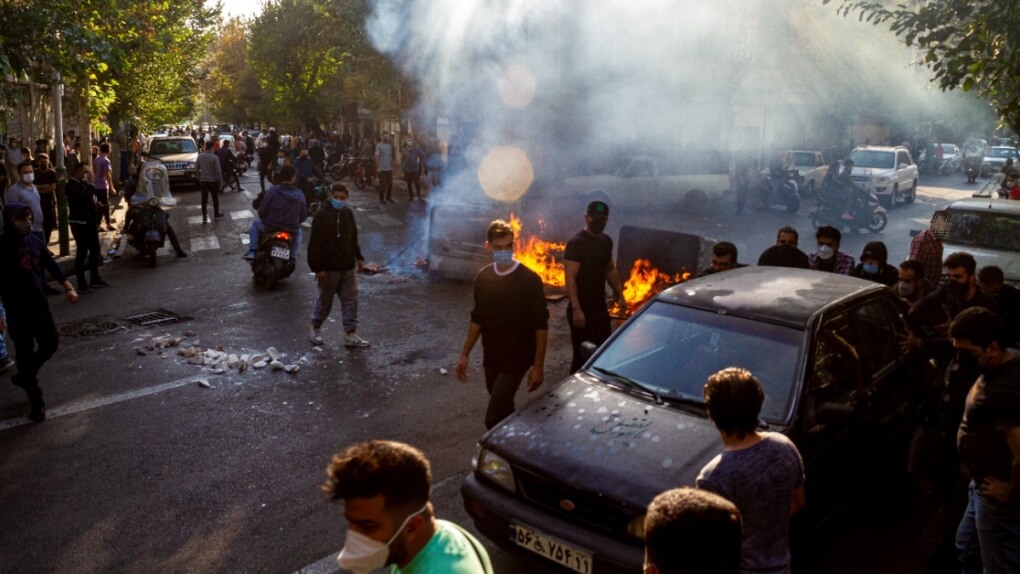Iran on Thursday executed a 23-year-old man, Mohsen Shekari, for injuring a paramilitary officer during the ongoing anti-regime protests, marking the first known state killing of a detained protester.
Mizan News, a media outlet close to Iran’s judiciary, reported that Shekari was hanged to death after a court convicted him last month of “creating terror” by blocking a street in Tehran on 3 October and wounding a member of the Basij militia with a machete.
The verdict accused the 23-year-old of “depriving people of freedom and security” by threatening to attack security forces. According to the report, Shekari confessed to his crimes and told the police that he had used a paid accomplice.
Mohsen Shekari was murdered by the state for wanting freedoms so many of us take for granted. My thoughts are with his family and all who loved him. #MohsenShekari #IranRevolution #Mahsa_Amini https://t.co/VnWWjx5Ya7
— J.K. Rowling (@jk_rowling) December 9, 2022
The Supreme Court rejected Shekari’s appeal because his actions threatened the lives of many citizens.
Iran has received widespread flak for the hanging of Shekari, both domestically and internationally. According to Iran International, protests took place on the street where the police arrested him. In an unverified video posted on Twitter, people marched to Shekari’s house in solidarity with his family.
Human rights group Amnesty International tweeted that it is “horrified” at Shekari’s execution, saying that Iranian authorities conducted a “grossly unfair sham trial” that lasted only three weeks. “His execution exposes the inhumanity of Iran’s so-called justice system as dozens of others face the same fate,” Amnesty said.
The moment the mother of Iranian protestor Mohsen Shekari, age 23, learns he’s been hanged for “waging war against God”. The regime told her to stay silent to win his release. This execution was meant to deter further dissent, but likely does the opposite. pic.twitter.com/FdX9uWIcKw
— Karim Sadjadpour (@ksadjadpour) December 9, 2022
Similarly, Norway-based group Iran Human Rights (IHR) said Shekari was executed “after a hasty and unfair trial without a lawyer,” warning that if the Tehran does not face “serious consequences” for his hanging, the country will witness the “mass execution of protesters.”
The United States (US), too, condemned the execution calling it a “draconian” move meant to intimidate protesters. State Department spokesperson Ned Price said on Thursday that the killing “represents a grim escalation in the regime’s attempt to suppress dissent and quash these protests.” He stressed that these tactics show that “Iran's leadership fears its own people and fears the truth.”
US Secretary of State Antony Blinken tweeted that Tehran’s action was “appalling” and demanded that it end its brutal crackdown on protesters.
In a similar vein, National Security Advisor Jake Sullivan called the “unjust and cruel” execution of Shekari a “cynical attempt to intimidate the brave Iranian people.”
The unjust and cruel execution of #MohsenShekari is a cynical attempt to intimidate the brave Iranian people. Our hearts are with his family. We will hold the Iranian regime accountable for the brutal violence it’s committing against its own people. #MahsaAmini
— Jake Sullivan (@JakeSullivan46) December 8, 2022
United Nations (UN) human rights experts also condemned Shekari’s execution, saying under international law, the death penalty “can only be imposed and enforced for offences that meet the threshold of the most serious crimes.”
“We fear for the life of Iranian artists who have been indicted on charges carrying the death penalty,” they said.
Anti-regime protests erupted across Iran in mid-September in the wake of the death of 22-year-old Kurdish woman Mahsa Amini, who was arrested by Iran’s morality police for not wearing her hijab correctly. Amini was brutally tortured and died while receiving treatment at an intensive care unit of the Kasra hospital in Tehran.
What initially began as protests demanding an end to mandatory hijab laws have gradually morphed into a nationwide movement calling for the end of the theocracy in Iran. Protests have spread rapidly across the nation and galvanised school and university students, including girls, labour unions, and prisoners.
To the leaders of the free world: action, not simple condemnation, is needed urgently to save many innocents who are at imminent risk of being executed by the regime, as Mohsen Shekari was today. To hold this regime accountable, promptly expel its ambassadors and recall your own. pic.twitter.com/LvLauuhLkY
— Reza Pahlavi (@PahlaviReza) December 8, 2022
Nationwide demonstrations have continued to spread for almost three months. According to the IHR, at least 458 protesters, including 63 children and 29 women, have been killed in clashes with security forces. The IHR notes that protesters have been killed in 26 provinces. The greatest number of deaths have occurred in the Sistan, Baluchistan, and Kurdistan provinces.
Last month, 227 of 290 Iranian lawmakers called on the judiciary to issue death sentences to all detained anti-regime protesters. They called the protesters mohareb, which means “enemy of God” according to Sharia law. Per Islamic law, the death penalty is the punishment for being a mohareb.
According to a recent report by the IHR, Iran has executed over 500 people in 2022, the highest figure in five years. “These executions are intended to create societal fear and divert public attention from the Islamic Republic’s intelligence failures,” the IHR said.

